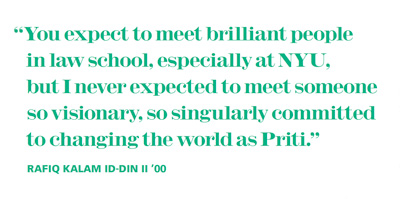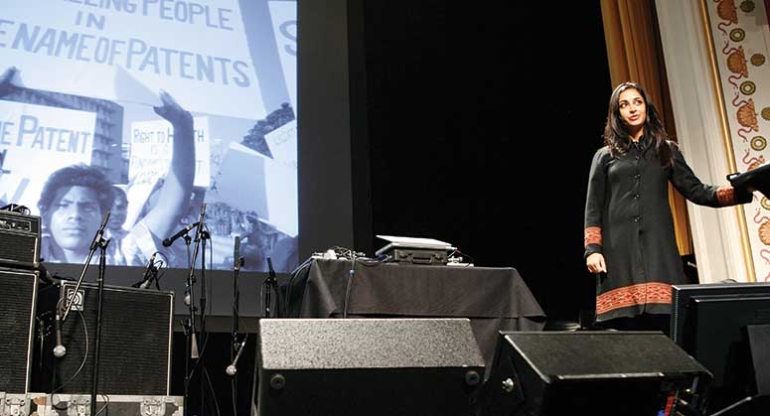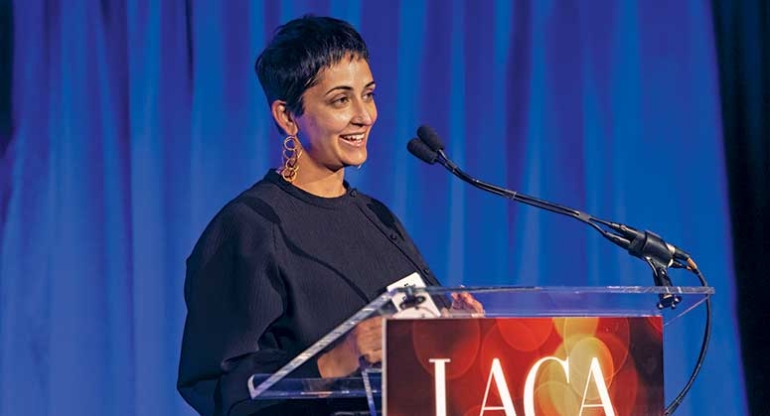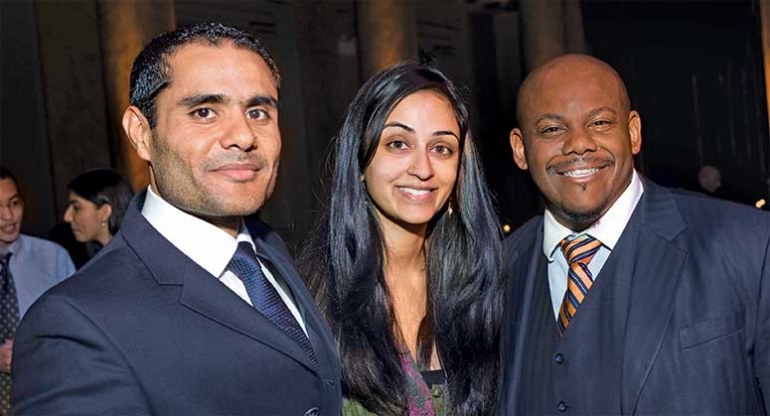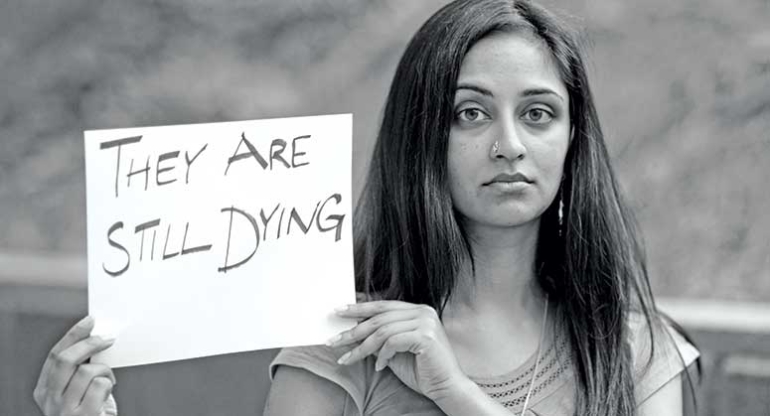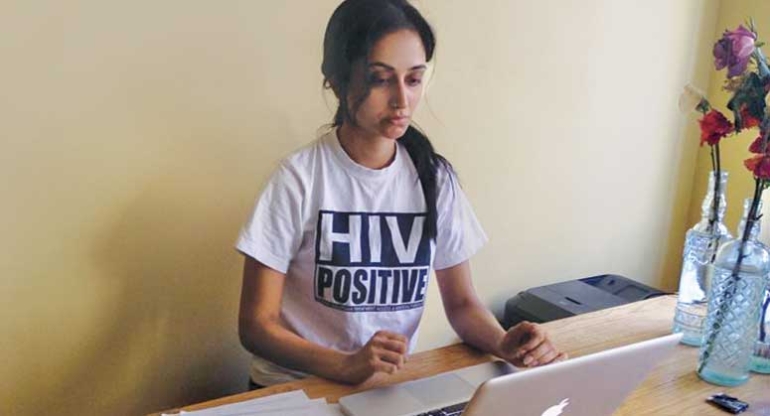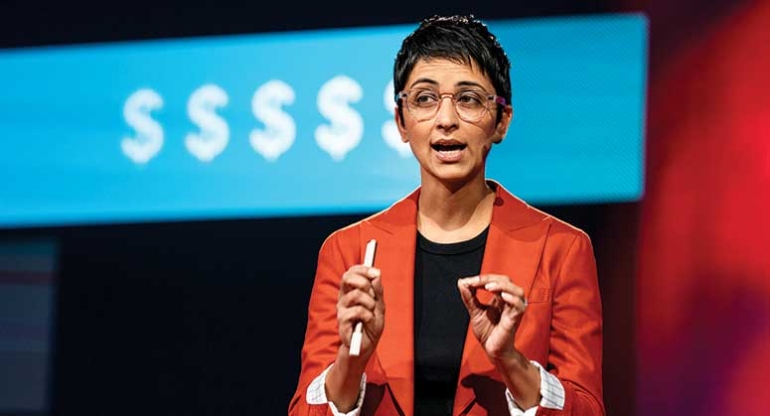Alternative Medicine

To make lifesaving drugs more widely available, Priti Krishtel ’02 advocates for patent reform around the world.
BY EMILY ROSENTHAL
In 2005, India changed its patent laws to allow pharmaceutical products to be patented—a seismic shift for a country whose previous, less-stringent patent protections had made it a world leader in generic medicines. Sensing disaster for millions of low-income patients, health activists launched a campaign to amend the new legislation to protect access to affordable medications. That was the moment when Priti Radhakrishnan Krishtel ’02, then a senior project officer in the HIV/AIDS unit of India’s Lawyers Collective, found her true calling.
Krishtel’s expertise in intellectual property and health care law, combined with her passion for social justice advocacy, made her uniquely qualified to throw herself into the fight. “Some nerd thing clicked on in my head, and I realized that of all th eamazing things I had gotten to be a part of, working toward just patent laws was what I wanted to really dig in on,” Krishtel says. “So I spent hundreds of hours reading organic chemistry books, trying to build cases, educating villagers and grassroots groups about what patents are, and organizing protests and global advocacy with coalitions.”
This work ultimately led Krishtel to co-found the Initiative for Medicines, Access, and Knowledge (I-MAK), a nonprofit that works for health equity through patent reform and other systemic changes in the drug development system. I-MAK’s legal work and research have expanded to cover 49 countries and 33 treatment sfor 16 diseases, such as hepatitis C, HIV, leukemia, tuberculosis, diabetes, cancer, and blood-related disorders. Simultaneously, Krishtel has emerged as a leading voice for making the patent system more responsive to the needs of patients and health care providers. Last year, the MacArthur Foundation selected Krishtel as a MacArthur Fellow, awarding her an $800,000 “genius grant.”
“Over the last two decades, Priti has become the central leader of the fight for patent reform and increasing access to medicines internationally, and now I would say domestically in the US,” says Gregg Gonsalves, an associate professor of epidemiology at Yale University, who works on HIV/AIDS and other global health issues. “She has done the work to build up the case that intellectual property and commercial patent rights do not trump the right to health. She is an integral figure in the global access to medicines movement.”
“You expect to meet brilliant people in law school, especially at NYU, but I never expected to meet someone so visionary, so singularly committed to changing the world as Priti,” says Rafiq Kalam Id-Din II ’00, president of the Law Alumni of Color Association. “She has combined the best NYU Law has to offer, [including]strong programs in intellectual property and public interest law,” adds Rochelle Dreyfuss, Pauline Newman Professor of Law Emerita, who taught Krishtel at NYU Law. “I watched with astonishment as she turned the dream of I-MAK—and a commitment to make the world a better place—into an international political force for distributive justice in the health care sector.”
This past summer Krishtel stepped back from serving as I-MAK’s co-executive director while remaining on the organization’s board. For her next chapter, Krishtel says she is seeking to partner with players in film, television, and journalism, as well as with museum curators, to share and spread her vision of a more equitable health care system.
“Ten years ago, if I was in the US and said I worked on patent reform, people looked at me like I was crazy,” she says. “Now, people are with us. Everywhere I go, people tell me to keep going, and that this is important work.”
Growing up in Fremont, California, Krishtel wanted to be a reporter, like her grandfather C. N. Chitta Ranjan, a journalist during India’s independence movement. “He had a very strong sense of justice and used his platform as a national leader in journalism to speak up for marginalized communities,” Krishtel says. Her father’s work as a pharmaceutical scientist helping to cure disease also inspired her, she says. But a class on constitutional law at the University of California, Berkeley, where she majored in political science, fired her interest in law.
At NYU Law, Dreyfuss’s patent law classes proved formative. “In the classroom, Professor Dreyfuss made patent law come alive to understand what is and isn’t patentable, how its rules are shaped and jurisprudence is constructed, and how it has evolved,” Kristel says. She began thinking about the connections among patents, innovation, and inequality.
Krishtel also cites as influential a clinic on domestic violence in the United States and India, taught by Professor Linda Mills and Professor Holly Maguigan. Students learned about social workers and attorneys working together as advocates, and about Indian nongovernmental organizations (NGOs) like the Lawyers Collective. “[Priti’s] insatiable desire to dig deeper, cross boundaries, and do more were evident in our clinic when she was a student at NYU,” says Mills, who is now president of NYU. “These same qualities have catapulted her on a path to defining the field of drug access.”
After graduation, Krishtel worked as a health law associate at a law firm in Los Angeles but quickly realized law firm life didn’t suit her, she says: “NYU Law threw me a lifeline.” A grant from the Center for Human Rights and Global Justice took her to the World Health Organization’s (WHO) Health and Human Rights Strategy Unit, just as the WHO implemented its 3x5 Initiative, a commitment by governments worldwide to bring HIV treatment to three million people by 2005.
“I wanted to go on the ground and see how this was all rolled out,” recalls Krishtel. She went to work at the Lawyers Collective Women’s Rights Initiative in New Delhi and joined the HIV/AIDS Unit as India was preparing to adopt its new patent regime. During the lobbying campaign over the new legislation, Krishtel met Tahir Amin, who was then working at another NGO, at a town hall meeting for patients and advocates.
“I was an ex-corporate IP lawyer figuring my path and where to best use my practice skills, and she encouraged me to get involved,” Amin says. “Looking back,” he adds, “I realize that was one of Priti’s amazing strengths, identifying and bringing in people to help build a movement.”
The two began leading teach-ins about patent law. Krishtel says she grew dismayed as she saw patients who needed lifesaving medications die amid litigation to ensure access to treatment. “We realized we needed to start our own shop,” says Krishtel. They launched I-MAK in 2006.
“The main area of focus for I-MAK was the patent problem, because we saw it as the power center,” Krishtel says. “Medicines for HIV were coming to the market, but people weren’t getting them,” she adds. Krishtel and Amin partnered with Indian civil society groups to file patent oppositions, challenging patents that they believed companies had filed only to block competition. Such patents were related to existing medications but covered so-called secondary innovations, such as a change of dosage forms or a new drug coating. These new patents would extend a drug’s patent protection and delay the advent of generic competitors.
I-MAK’s successful patent challenges to four HIV drugs in India helped bring down prices by 51–87 percent as generics entered the market, Krishtel says.
Building a small team of scientists, health experts, and lawyers, I-MAK began partnering with patients and community groups in nations such as Brazil, Argentina, Thailand, and Ukraine, who started to litigate drug patents in their countries. Within a few years, I-MAK expanded its focus to treatments for hepatitis C, tuberculosis, diabetes, cancer, and blood-related disorders. In 2015, the team coordinated a worldwide effort to challenge the patent protections around SOVALDI, Gilead Sciences’s blockbuster hepatitis C drug. These challenges helped accelerate the availability of cheaper generic treatments in many countries, says Amin.
I-MAK also worked to create an environment for broader reform by documenting the impact that drug patents have on patients. Advocates could use this evidence to argue against the widespread granting of unmerited patents and drive change in the patent systems of their own countries. Krishtel emphasizes the importance of hearing from patients and fostering conversations among patients, pharma, government officials, and tech and other sectors.
“I don’t like to think of myself in opposition to the pharmaceutical industry,” says Krishtel. “I think what we all want is to discover cures that can save lives, and then make sure those medical products reach people as quickly as possible. The problem is that we live in an economic system that incentivizes business to go for as much money as possible. To change the law, we have to change how people understand its systems—you have to change culture and mindset.”
In 2018, I-MAK launched a series of reports, Overpatented, Overpriced, that compile patient and market data to argue that excessive pharmaceutical patenting is extending monopolies and driving up drug prices. Overpatented, Overpriced findings have been used as a resource by a wide range of media organizations, including the New York Times and NBC News. “[I-MAK’s] reports are often cited by academics, including in law journals, [by]policymakers and in congressional hearings,” IPWatchdog Editor in Chief Eileen McDermott wrote in 2022. A Hudson Institute report by Adam Mossoff, a professor at Antonin Scalia School of Law and former executive committee chair of the Intellectual Property Practice Group of the Federalist Society, criticized I-MAK’s methodology while acknowledging its reach, noting that I-MAK has become “a principal, go-to source” for factual information about patents and patent applications.
The COVID-19 pandemic catapulted Krishtel into the role of global spokesperson, joining national and international media broadcasts daily to discuss how pharmaceutical company patents were slowing the distribution of coronavirus vaccines. In October 2020, India and South Africa urged the World Trade Organization to temporarily waive patent protections on COVID-19 vaccines, in an effort to boost global production, but lengthy deliberations by wealthier countries delayed the rollout of vaccines in many developing nations. The US, a longtime holdout, agreed to the waiver in May 2021 in the face of strenuous objections fromthe pharmaceutical industry—reflecting a remarkable shift in the ongoing debate over IP rights versus public health.
For I-MAK, Krishtel says, the next few years will be about fueling the federal policy debate, by making data accessible and using it to accelerate understanding of the patent system and how to change it. The organization has focused much of its recent advocacy on proposals to make the US Patent and Trademark Office more inclusive and equitable. The goal, Krishtel says, is “shifting the power dynamics of the patent system to ensure the US Patent and Trademark Office is not just an exclusive club for the elite few, but a true public agency.”
For herself, Krishtel says she is looking forward to finding ways to continue her advocacy in new forums. “When it comes to COVID, my life, just like many others’ lives, was changed a lot,” Krishtel says, noting that she lost several loved ones during the pandemic. “But COVID also opened up a space [where]every single person saw what was happening, and public opinion shifted,” she adds. “Drug prices are out of control in the US, and what we saw with the inequities in COVID vaccine distribution was unconscionable. And so it feels incredible to have this kind of public support and momentum now, and I hope it keeps going.”
Posted September 11, 2023. Emily Rosenthal is public affairs officer at NYU Law.
Photo credits: IMAK-Jennifer Graham Photography (Krishtel portrait); Echoing Green (Krishtel at Duke University); Elena Olivio (Krishtel at LACA dinner); Marla Aufmuth (Krishtel at TEDWomen conference); Kris Krüg (Krishtel at PopTech conference).


